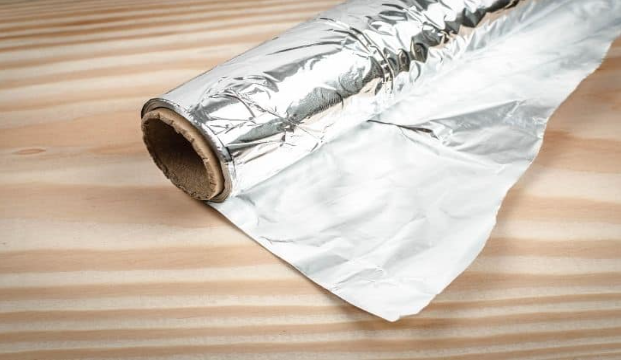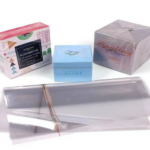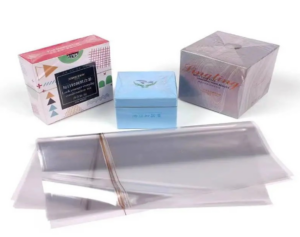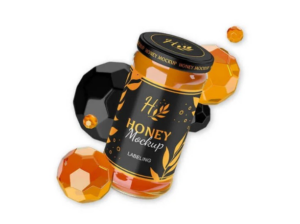The versatility of aluminum foil as a culinary utensil and food wrapper has propelled it to global stardom. Aluminum foil from China Aluminum Foil manufacturers has several applications in the kitchen and is also a good choice for the environment because it can be recycled easily.
The blue economy is a way of thinking about economic growth that emphasizes using marine resources sustainably and responsibly. The maritime, tourist, renewable energy and fishing sectors are all part of it. There have been recent developments in materials and procedures that aim to reduce the impact of humans on marine ecosystems. Unexpectedly, aluminum foil, a common household item, has emerged as a player in this quest for sustainability inside the blue economy.

Aluminum Foil: Multipurpose
Aluminum foil has been used in kitchens worldwide for its flexibility and food preservation. Its lightweight, malleability, and high-temperature resistance make it essential for Packaging, preparing, and storing food. Aluminum foil’s extraordinary characteristics extend beyond the kitchen, giving many sustainable uses in diverse sectors.
Traditional Packaging’s Environmental Impact
The marine ecology is threatened by single-use plastics used for Packaging. Ocean pollution from their non-biodegradability endangers marine life and ecosystems. Since aluminum foil is eco-friendly, it has become a popular alternative to plastic.
Sustainable Packaging using Aluminum Foil
Aluminum foil from China Bopp film manufacturers is a sustainable packaging solution since it is recyclable, durable, and preserves items well. Aluminum foil may be recycled without losing quality, unlike single-use plastics. Recyclability decreases its environmental impact and promotes a circular economy.
Aluminum foil also protects items from moisture, light, and pathogens, extending shelf life. This trait helps preserve food, reduce waste, and promote sustainable consumption.

Innovative Marine Conservation Applications
Aluminum foil has inspired creative marine conservation and sustainability applications due to its unique qualities. Researchers and environmentalists have studied biodegradable alternatives to single-use plastics in Packaging and marine debris.
Biodegradable Packaging constructed from natural fibers and aluminum foil may reduce marine pollution. These materials disintegrate quicker than plastics, reducing marine ecological and animal damage.
Aquaculture and Ocean Research Aluminum Foil
Sustainable techniques reduce the environmental effect of aquaculture, a blue economy staple. Aquaculture uses reflective aluminum foil to build floating barriers to prevent predators and safeguard fish farms. Aluminum foil is also utilized in oceanographic research equipment for data collecting and monitoring, helping us understand marine habitats.
Challenges and Prospects
Aluminum foil is eco-friendly, but harnessing its blue economy potential is difficult. Recycling infrastructure, customer awareness, and technological advances are needed to use aluminum foil in sustainable practices.
Material science and engineering advances may enable more inventive and eco-friendly aluminum foil uses. Industries, governments, and environmental groups must work together to remove obstacles and promote aluminum foil as a sustainable alternative.
Aluminum foil recyclability
Recyclability makes aluminum foil appealing. Aluminum does not deteriorate after recycling, unlike many other materials. In a circular economy, it is helpful because it can be recycled without losing quality.
The Recycling Process
Aluminum foil recycling starts with collecting. This step relies on consumers to sort old foil from other garbage. Foil is recycled in many steps at recycling facilities:
- Sorting: Recycling facilities sort aluminum foil. Manual labor and advanced sorting systems assist in segregating.
- Shredding and Melting: Aluminum is melted by shredding the foil into little bits and heating them. This molten metal is refined and formed into ingots or blocks.
- Rolling and Remanufacturing: Aluminum ingots are rolled into thin sheets to make foil and other goods. This remanufacturing method uses far less energy than raw aluminum production.
Recycling aluminum foil’s environmental impact
Many environmental advantages come from recycling aluminum foil:
- Energy conservation: Recycling aluminum uses less energy than mining and processing aluminum ore. Aluminum production from bauxite, its primary resource, requires just 5% of its energy.
- Decreased Emissions: The ecological benefits of recycling include a reduction in greenhouse gas emissions, which aids in mitigating climate change.
- Resource Conservation: Recycling aluminum foil minimizes the need for raw aluminum ore, which requires substantial mining and extraction.

Recycling Aluminum Foil Challenges
Aluminum foil is recyclable, although recycling it is complex:
- Food residue and other contaminants might hamper recycling. Recycling old foil requires proper cleaning before disposal.
- Lack of customer understanding regarding aluminum foil’s recyclability and correct disposal hinders recycling.
Encouraging Sustainability and Reusability
Another sustainable strategy is to encourage the reusability of aluminum foil in addition to recycling. A great way to reduce trash is to encourage people to reuse foil for sandwich wrapping and dish covering.
Furthermore, sustainable alternatives to single-use aluminum foil, such as reusable silicone mats or beeswax wraps, are eco-friendly options.
Advancements in the Recyclability of Aluminum
When it comes to recycling aluminum foil, innovation is critical:
- Modern Sorting Equipment: State-of-the-art sorting equipment streamlines the recycling process by accurately and efficiently separating aluminum foil from other materials.
- Closed-Loop Systems: A circular economy may be advanced by creating closed-loop systems that use recycled aluminum in manufacturing cycles. This will help to minimize waste and save resources.
Final Thoughts
An often overlooked but crucial component of the shift to a blue economy that is more environmentally friendly is aluminum foil. Efforts to reduce the environmental effect, especially in marine conservation, may greatly benefit from its recyclability, protective characteristics, and various uses. Aluminum foil has significant untapped potential for innovation and environmental protection, which might lead to more sustainable maritime practices and a better marine environment for future generations.
In our journey towards a greener future, one minor but significant action we can do to protect our seas and promote the ideas of the blue economy is to use aluminum foil for its many uses.






